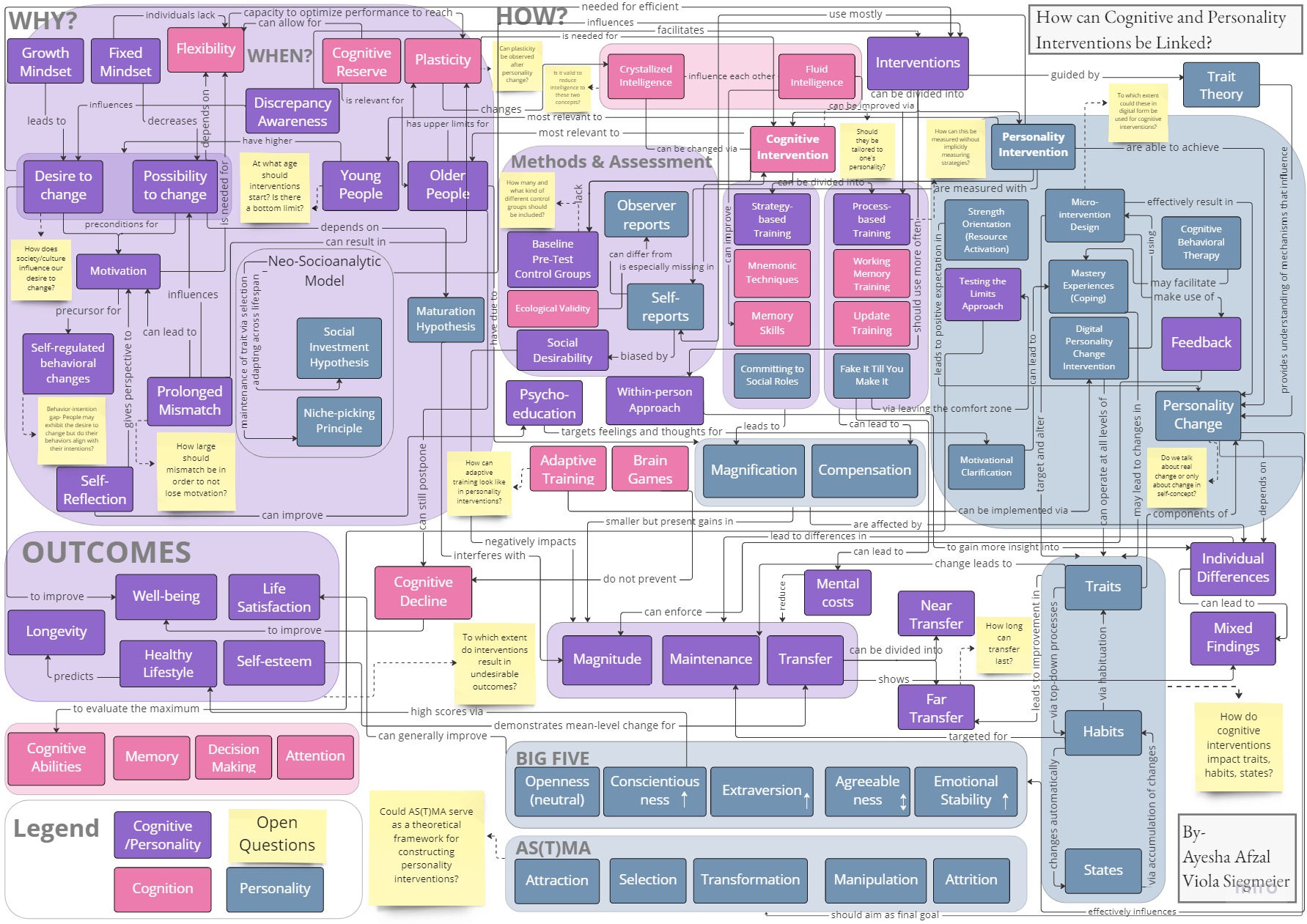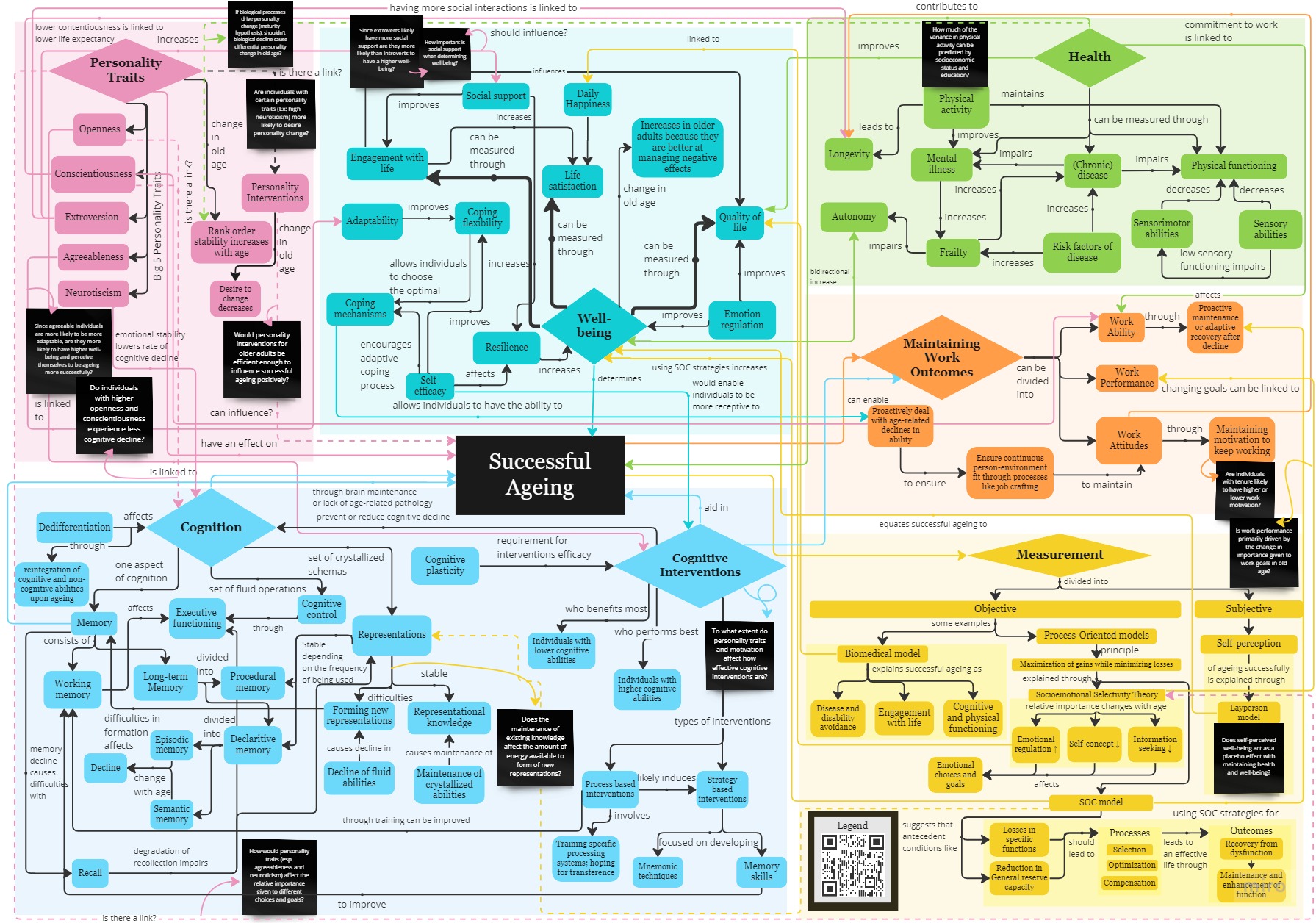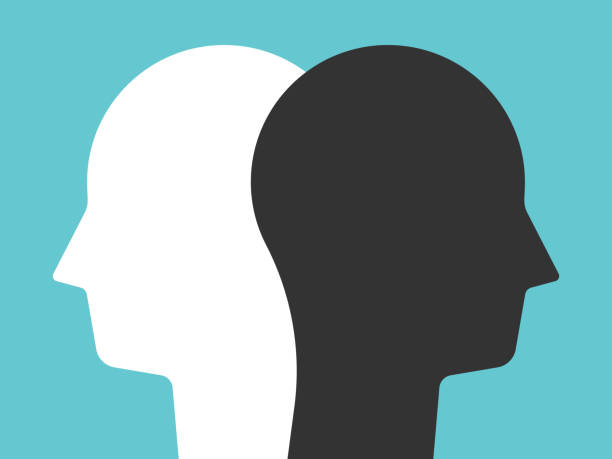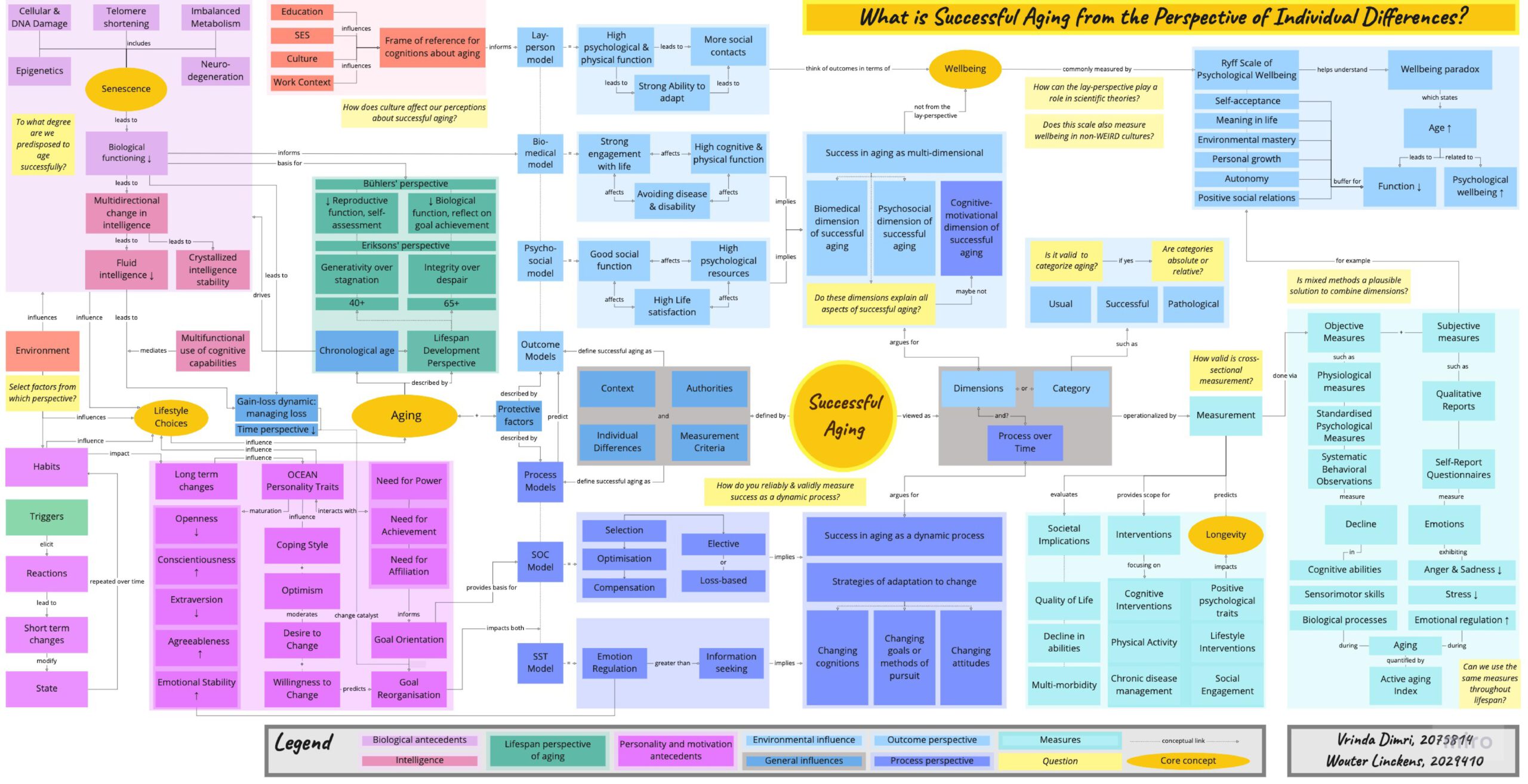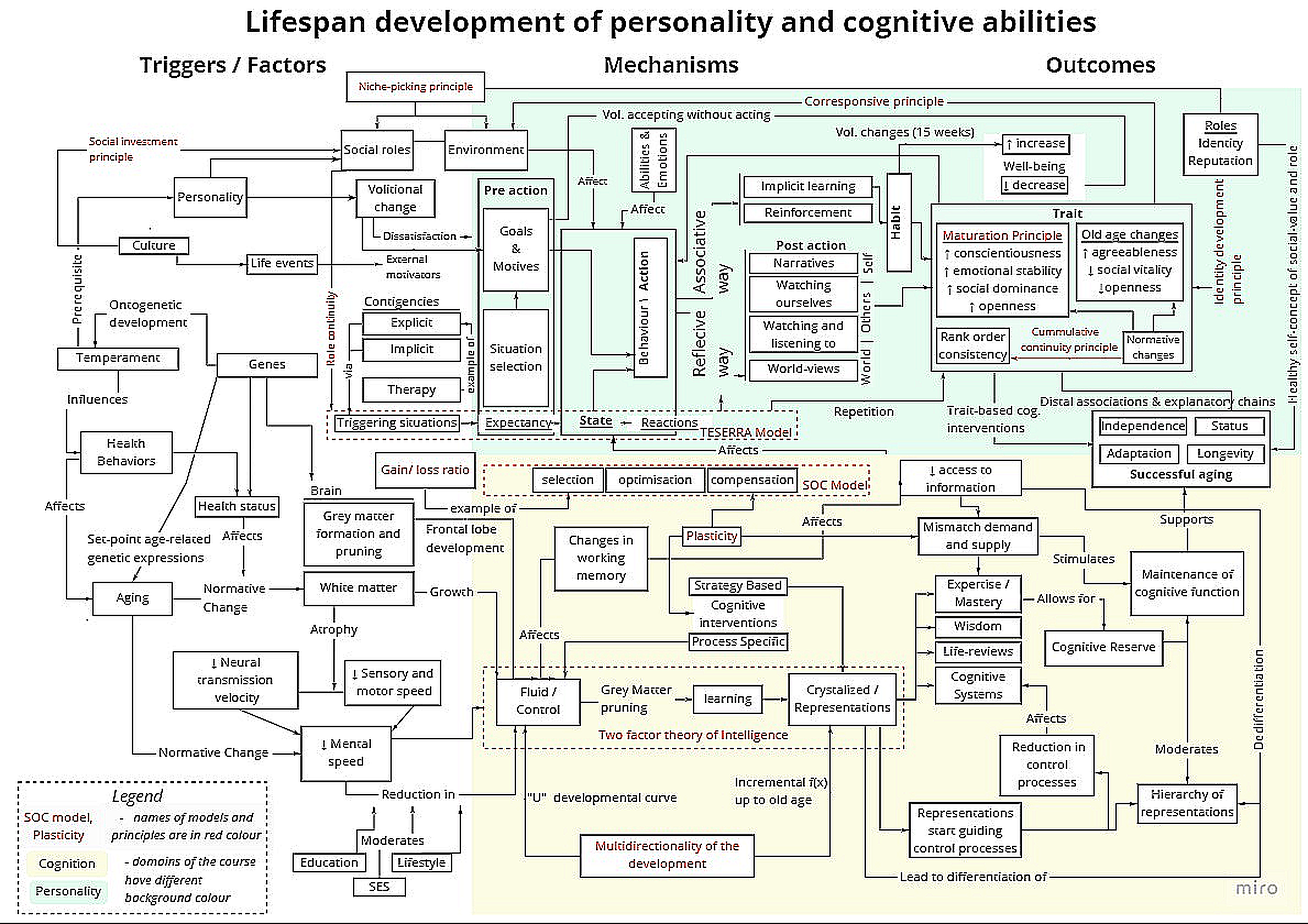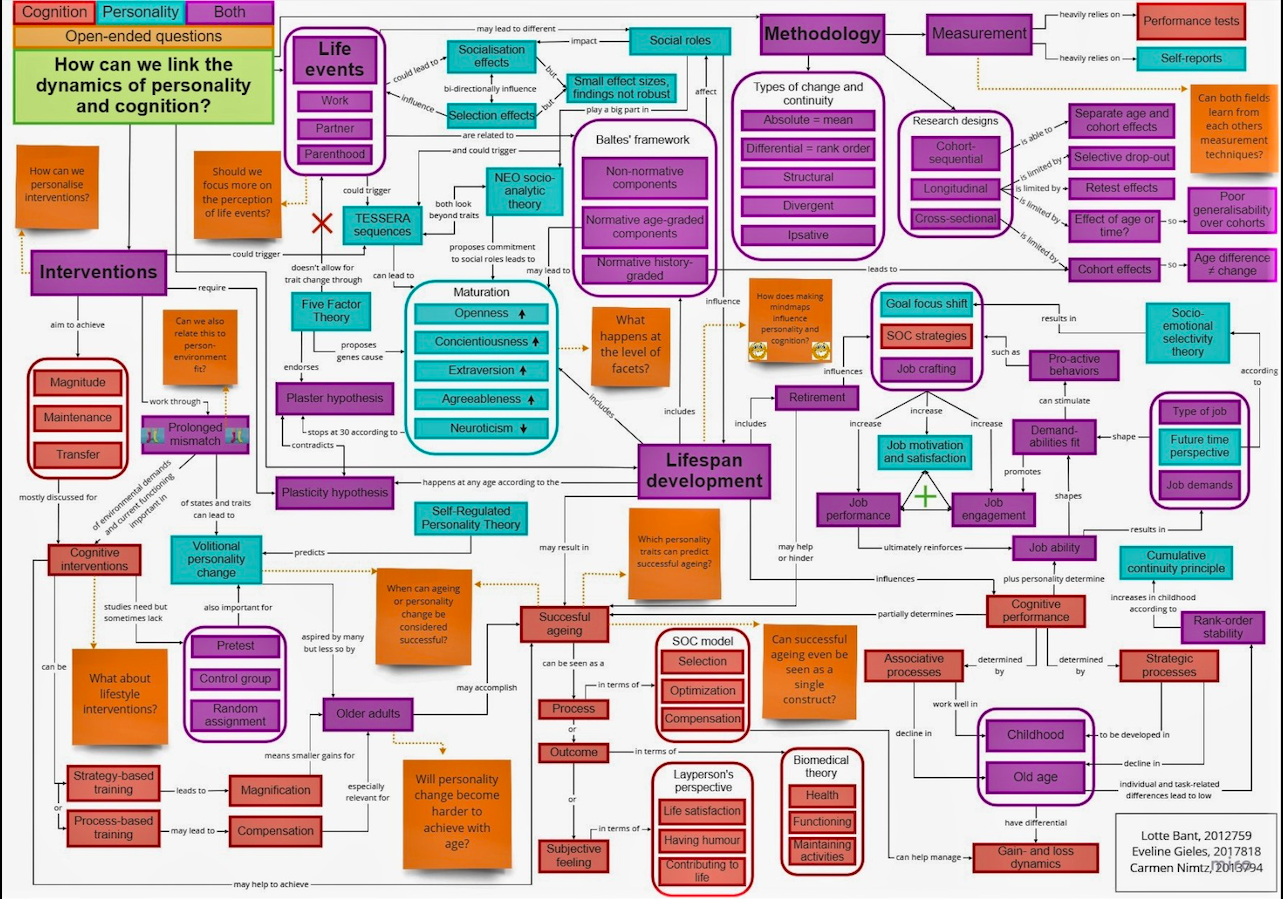Personality traits and cognitive abilities are among the most central predictors of relevant life outcomes, such as health, longevity, life satisfaction, educational and work motivation and success. However, these psychological constructs constantly change with age and so does their relationship with relevant outcomes. Developmental psychologists try to understand why and how these constructs and relationships change across life. Among others, understanding which factors encourage growth or prevent decline at critical moments in life is of central relevance. By studying these processes, persons who are at risk of experiencing negative outcomes (e.g., bad 4 physical and psychological health in old age) can be identified, and interventions can be developed to target the underlying reasons earlier in life. Similarly, identifying positive effects of personality and cognitive abilities on relevant life outcomes(e.g., job success and satisfaction) can help understand which behaviors need to be encouraged earlier in life (e.g., childhood) to encourage growth.
In this course, students will acquire in-depth knowledge on how and why personality traits and cognitive abilities change across life and how they interact with each other at different stages in life. The students will learn different concepts of change and stability, and how to interpret empirical findings on change. In addition, students will learn about the relevance of personality traits and cognitive abilities for various relevant outcomes at different stages in life (e.g., health, job success) and how interventions can improve these outcomes by targeting the psychological constructs. Finally, students will learn about the relevance of (changing) personality traits and cognitive abilities for work outcomes.
If you want to see how we learn and what our assignments consisted of, below you will find examples our students submitted!
w ta







